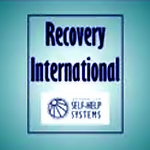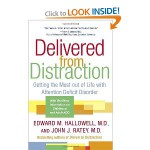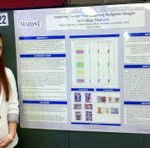
The Winter 2016 issue of the University of Toronto—where I did graduate work forty years ago—alumni magazine features an article on the college response to a rise in mental-health needs among its students. In an evermore diverse society, in a faster-changing culture amid the brave new world of social media, college-aged students in North America […]
By:
Evander Lomke

A year-and-a-half following the horrible killings at the Sandy Hook, Connecticut, elementary school, we Americans are still searching our souls, trying to understand how this tragedy could happen, why it did, what might have been the warning signs before young Adam Lanza snapped. Journalist Andrew Solomon met with Adam’s father, Peter Lanza, over six gut-wrenching […]
By:
Evander Lomke

AMHF Professional Advisory Board member Dr. William Van Ornum is quoted by CNN Health on the subjects of obsessive-compulsive disorder and scrupulosity. Considerable controversy also exists among the professional community regarding issues such as worship itself and OCD or addiction, as well as whether certain seizure disorders manifest, or perhaps mask, themselves as hyper-religiosity.
By:
Evander Lomke

On our AMHF blogs we have tried to feature information about where the Venn diagrams of spirituality and counseling intersect. It seems peculiar that many religious people–from many religions–are reticent to link the spiritual resources and traditions of their faith with modern psychology and psychiatry. When people are depressed, psychotic, or anxious, there is a […]
By:
William Van Ornum, Ph.D.

For three days last week American Mental Health Foundation Books shared a booth with its distributor, Lantern, at the annual BookExpo America—which is held at the Jacob Javits Center on New York City’s West Side. (New York remains the publishing capital of North America, even with the multitude of changes the industry has seen.) The […]
By:
William Van Ornum, Ph.D.

Newly minted pastor Ed Stetzer, writing in CNN.beliefnet, writes of his dealings with a man in his congregation. This person would often disappear for days at a time, and later Stetzer would hear that the fellow had spent hours praying the psalms. Later the man killed himself, leading Stetzer to reflect of aproaches churches could […]
By:
William Van Ornum, Ph.D.

As Edward R. Murrow said, there are two sides to every story. Our previous probing into an increase and acceleration in funding for research into the brain waxed positively. A different viewpoint—now taken by major pharmaceutical industries—suggests that their interest in brain research is waning. Reuters reports the following: “Many pharmaceutical companies harbor deep doubts […]
By:
William Van Ornum, Ph.D.

President Barack Obama made headlines with his proposal to encourage American scientists to work toward understanding the great mysteries of the brain. Done as a massive project, this could rival past collective enterprises such as Getting a Man to the Moon; when President Kennedy suggested this, it took everyone’s breath away. It looked unattainable in […]
By:
William Van Ornum, Ph.D.

Consumers of mental-health services may not realize the extensive system of codes that go into insurance billing and medical records, both for mental-health services and other medical services. For mental health, every person who receives insurance reimbursement receives a diagnostic code from the most current Diagnostic and Statistical Manual of the American Psychiatric Association, as […]
By:
William Van Ornum, Ph.D.

Previously I’ve written about Recovery International, founded by psychiatrist Abraham Low in the 1940s in Chicago, Illinois. Dr. Low initiated a revolutionary brand of treatment that we now call cognitive therapy: by changing one’s thoughts, one could change troublesome feelings and through practice attain better mental health. Dr. Low used the word apprenticeship to denote […]
By:
William Van Ornum, Ph.D.

Edward Hallowell and John Ratey have published a follow-up to their successful book Driven to Distraction. On a hopeful note, it is titled Delivered from Distraction. The first book was written in the 1990s. It contains much good advice on ADHD: diagnosis, medications, telling it apart from other conditions as well as finding it in […]
By:
William Van Ornum, Ph.D.

Too many times we view medication and psychological therapies as either/or treatments. Many times people will try to avoid any medication for even a severe mental health problem. Their reasons are always worth noting: perhaps there is a realistic fear of side effects, or a desire to work things out in a trusting relationship. Perhaps […]
By:
William Van Ornum, Ph.D.

The Individuals with Disabilities Act (IDEA) lists conditions present in a child that can qualify him or her for special services in the educational system in preschool. These are: *Chromosomal Abnormalities (e.g., Down syndrome) *Syndromes (e.g., fetal alcohol syndrome) *Neuromuscular Disorder (e.g., cerebral palsy, spina bifida) *Central nervous system (CNS) abnormality (e.g., caused by bacterial/viral […]
By:
William Van Ornum, Ph.D.
The American Psychological Association has announced, in the January 2012 issue of American Psychologist, “Guidelines for Assessment of and Intervention With Persons of Disabilities.” This document lists twenty-two practice-guidelines for psychologists who work with persons displaying disabilities of various kinds. The task force for this report was chaired by Kurt F. Geisinger of the University […]
By:
William Van Ornum, Ph.D.
Elaine Aron pioneered new ground over a decade ago when she wrote the trade book The Highly Sensitive Person; this was followed up by a workbook, a book on parenting children who are highly sensitive, and even a primer for therapists. Highly Sensitive Persons (HSP), in her view (which incorporates findings from important developmental psychologists […]
By:
William Van Ornum, Ph.D.

Finally Hollywood has discovered a good man with the right stuff to play the part of an incredibly loving father who happens to be a graduate of the Bronx High School of Science, loves baseball, and who has just a enough of Asperger’s syndrome qualities (a mere scent) to bond closely with his nine-year-old, a […]
By:
William Van Ornum, Ph.D.

In the recent yearly “Reports of the Association” issue of the American Psychologist (December 2011), the American Psychological Association announced “Practice Guidelines Regarding Psychologists’ Involvement in Pharmacological Issues.” This report notes several factors that will make psychologists more involved in medication-management issues. One survey noted that the number of Americans using antidepressants increased from 6.7 […]
By:
William Van Ornum, Ph.D.

What are mental bears? A person who is asked NOT to think aloud about a white bear will more often than not mention this same white bear: at least once a minute. So “white bears” have come to mean all sorts of unwanted thoughts that cause annoyance to even extreme frustration to those who experience […]
By:
William Van Ornum, Ph.D.
From the 14th edition of Abnormal Psychology by James N. Butcher, Susan Mineka, and Jill M. Hooley (Boston: Allyn and Bacon): “The concept of mental disorder, as we have seen, suffers from the lack of a truly objective means of what is disordered and what is not. It is also in the financial interests of […]
By:
William Van Ornum, Ph.D.

AMHF attended the 51st Annual Meeting of the New England Psychological Association (NEPA), held October 28-29 at Fairfield University in Fairfield, Connecticut. After a wonderful dinner, hosted by Drs. Robin Crabtree and Susan Franzosa, deans at Fairfield, participants heard child-development expert Dr. James Garbarino speak of “Children and the Dark Side of Human Experience: Confronting […]
By:
William Van Ornum, Ph.D.

On Friday, October 28, 2011, AMHF attended the 17th Annual Meeting of the Northeast Conference for Teachers of Psychology. This is a group of psychologists, who teach in colleges and universities, dedicated to improving their teaching of undergraduates and graduates. Participants of the group come from a wide range of specialties and interests including developmental, […]
By:
William Van Ornum, Ph.D.
Many higher-level persons with autism are fascinated by trains. Trains are predictable: They run on a schedule, are limited to staying on a track that only goes certain places, and have very structured seating plans that no doubt came to be after much consultation between engineers, designers, and draftspersons. To some extent, buses share these […]
By:
William Van Ornum, Ph.D.
Although many people confuse perfectionism with obsessive compulsive disorders, many see this as two separate entities that require different approaches in understanding. Most of us reading this will have an intuitive idea of what is being talked about, as most of us possess at least small levels of these two characteristics. Philip Gnilka, assistant professor […]
By:
William Van Ornum, Ph.D.
Hair-plucking, as reported by Laurel Braitman in Cabinet, via the March 14, 2011, New Yorker, is listed under “Impulse-Control Disorders Not Otherwise Classified” in the American Psychiatric Association Diagnostic and Statistical Manual of Mental Disorders IV. “She has observed enough ‘photos of mice and rats with little bald spots on their heads, reverse mohawks, or […]
By:
Evander Lomke
An anonymous letter to the editor appears in the current (February 2011) issue of N.Y. Able Newspaper, “The Newspaper Positively For, By & About The Disabled,” which cuts to the heart of AMHF and its work. “Obsessive Compulsive Disorder (OCD) affects six million Americans, two percent of the population. Sadly, OCD is very common and […]
By:
Evander Lomke
How might Eudes’ views be judged by others who are knowledgeable about psychology, psychiatry, and spirituality? Robert Coles, M.D., psychiatrist at Harvard University has for four decades emphasized the need for modern mental-health workers to combine spirituality with mental-health therapy. John Cardinal O’Connor, while known for his strong and formidable presence, also had a master’s […]
By:
William Van Ornum, Ph.D.
“The problem with OCD,” John Eudes says, “is that it leads to a mode of perception and thinking that is too abstract, too narrow. God is life-giving, not a taskmaster or harsh judge of solitary behaviors, as OCD or scrupulosity suggests. To fight OCD, one has to develop other images and thoughts based on reality […]
By:
William Van Ornum, Ph.D.
As professionals in the mental-health fields try harder with cognitive behavior therapy and medications, over and over, one might imagine that this is a manifestation of the same mechanism of OCD. Where might other sources of help be found, especially for those suffering with scrupulosity? Can a Trappist monk, who is also a Georgetown-trained physician […]
By:
William Van Ornum, Ph.D.
Although Monk and Jack Nicholson’s character in As Good as It Gets brought smiles as well as sympathy to those who never heard of Obsessive Compulsive Disorder (OCD), and even a certain peacefulness among OCD sufferers that, finally, their peers might see them not as weird but as true persons, a sad reality remains. Obsessive […]
By:
William Van Ornum, Ph.D.


























 Host Companion
Host Companion